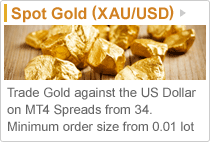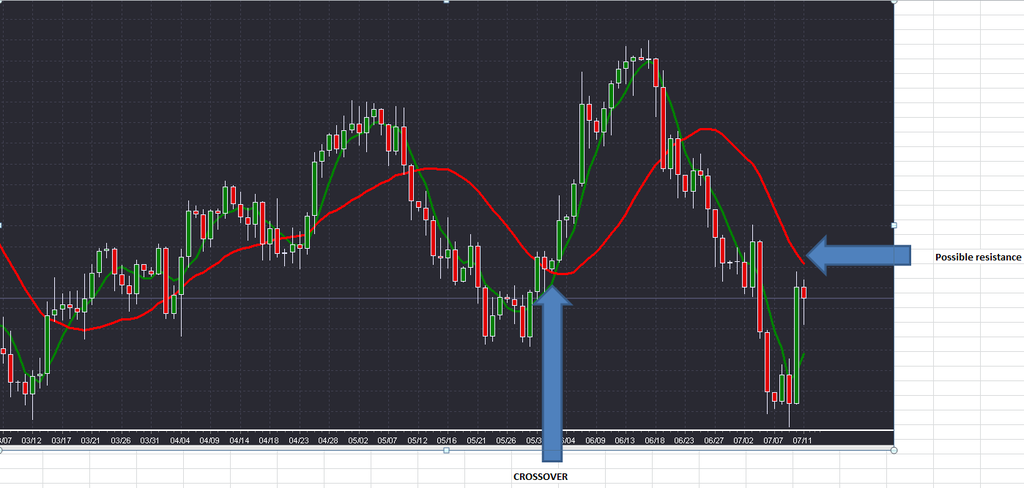Menu
About Moving Averages
We recently discussed Ichimoku Kinkō Hyō and have had some positive feedback. We will come back to it in more depth soon, but first a piece on Moving Averages!
A Moving Average (MA) can be defined as an indicator that shows the average value of a currency's price over a set period. They can be used to measure momentum and potentially define areas of possible support and resistance. They are known as lagging indicators because they confirm a trend rather than predict a trend.
Their importance is increased for technical analysts because they form the basis for other technical indicators and overlays, such as MACD and Bollinger Bands.
The two most popular MAs are:
Simple Moving Average (SMA) - e.g. a 5 day SMA = the sum of 5 day
closing prices divided by 5.
Exponential Moving Average (EMA) - reduces
the lag by applying more weight to recent prices.
In this note I will concentrate on Simple
Moving Averages.
The graph below comes from LION Trader and
I have created a daily chart of GBPUSD.
I have built two moving averages visualised by the Green and Red lines.
Green = 5 period Simple Moving Average
Red
= 20 period Simple Moving Average
Like all things, nothing is as simple as it
first appears....although the reason I like moving averages is that they are simple! You can then add other bits to them (like a
cake) to make them more fancy if you want.
A possible trading scenario could go
something like:
When the shorter MA (green) crosses the
longer MA (red) upwards then buy (you are assuming that the price is trending
upwards).
When the shorter MA (green) crosses the
longer MA (red) downwards then sell (you are assuming that the price is
trending lower).
If you believe you have a trend then
placing a trailing stop can be very powerful.
However you can potentially use the next crossover a s a way to close
and reverse your position. This means
you will always have exposure to the market you are trading.
The times that MAs do not work particularly
well is when the market does not know where it is going, staying in a tight
trading range or in volatile situations.
Happy trading!
The Hirose Team

 My Hirose Login
My Hirose Login







